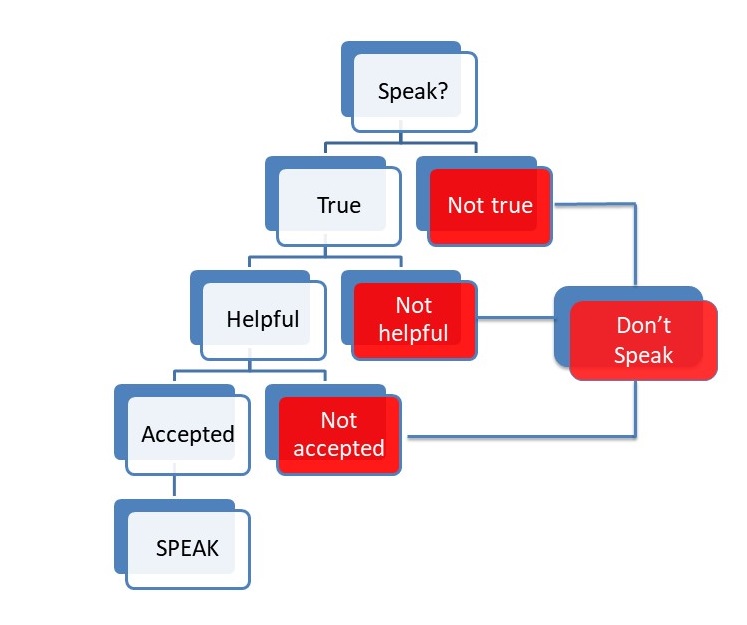[22 June 2021] Day 22 of fmco* in Malaysia
Imagine you are attending a talk and the speaker says something that is factually wrong. Or you are in a conversation and the other person is clearly saying something based on a wrong assumption. Or someone tells you that something cannot be done in a certain way although you have been doing it successfully all this time.
What do you do? Sometimes, I encounter these situations and am not sure if I should speak up or not?
Over the last few months, I have encountered these situations:
A webinar speaker was using a term wrongly in his talk. Thinking it would be good to let her know so that she doesn’t repeat the same mistake in future talks, I decided to send her a private message about it. I told her that I don’t think she is using the term correctly and that she should research it. I made sure I told her it’s a private message and the rest cannot see it. The speaker did not take it too well and started to defend the use of the term, I believe the rest of the webinar attendees could not understand what was going on. So I decided to drop it and stopped there.
Fast forward a couple of months, in a similar talk, another speaker made the same mistake. I was reluctant at first to say anything due to my earlier experience. When I finally said I want to feedback on something, he stopped to listen and asked for me to clarify further. When I did, he thanked me for helping him understand.
Since I started running online training on Zoom, I have been using its feature to add a logo in the waiting room message. It works. Today, a friend asked me how I did it, and so, I explained it to him He, then, told me that it absolutely cannot be done. So, I let just let it be and stopped there. I’ll be more than happy to show him if he asks me again.
Speak or don’t speak: my flow chart
A few years ago, I started to use a simple flow-chart to decide whether I need to speak or not, and also to decide when to stop speaking.

Let’s start with the question: Speak or don’t speak?
If it’s True, then I continue.
Then, I ask myself if it’s Helpful. If it is, I continue.
Then, I ask again, if it is accepted by the listener.
If any of these checks fail, I stop.
In the cases of the first webinar speaker and my friend, the situation passed the first two checks. But failed on the third one. They could not accept it. You really cannot pour water into a closed vessel. Until they are ready to hear more, it no longer helpful or useful to continue. It’s also a good way to keep the peace.
What do you think?
(Feature Image by Robin Higgins from Pixabay)
*fmco = Full Movement Control Order
About the Author: Gina Phan is a consultant and trainer with Zinfinity Consulting. She currently conducts courses in workplace performance skills. Click here to contact her, follow her on Facebook or connect with her on Linkedin.
#communication #rightaction #diplomacy
#trainergina #ginaphan #gp


